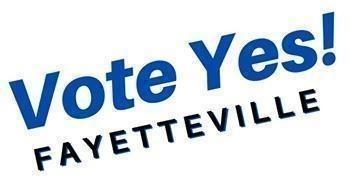
The ruling by Superior Court Judge Jim Ammons last week mandated that the council move forward with a November referendum on the proposal by the Vote Yes Fayetteville advocacy group to reshape the way City Council members are elected.
“Judge Ammons' order is in effect as of right now,” said Lonnie Player, the Fayetteville lawyer who is representing the Vote Yes committee.
On Sept. 1, Ammons ruled that the referendum be placed on the November ballot to allow voters to decide if they want to change the way the City Council is structured.
Despite Friday's ruling, Mayor Mitch Colvin said, questions remain about whether the correct procedures were followed to circulate the petition calling for the referendum.
"I respect the 2-1 decision of the Court of Appeals to let the referendum proceed to the voters while the court decides whether the petition was valid," Colvin said in a prepared statement issued Friday. "The City Council was faced with an unprecedented legal issue and had a duty to follow state law as written. As the court's split decision shows, serious questions remain, and we will await the decision regarding the petition about whether the petition is valid."
After delaying action on the issue at two previous meetings, the City Council voted 6-4 on Aug. 22 against calling a referendum on the Vote Yes initiative.
During that regular meeting of the council, City Attorney Karen McDonald said questions persist about the validity of the petition calling for the referendum that was submitted by Vote Yes. McDonald said the council had directed her to contact the county Board of Elections to inquire about whether petition organizers followed the rules.
The Vote Yes Fayetteville initiative calls for electing four City Council members at large and five from districts. The mayor would still be elected citywide. Currently, all nine council members are elected by district.
The city’s appeal reiterated arguments that the Vote Yes group did not follow all procedures when it circulated a petition call for the referendum.
“A local board of elections should not be forced to print ballots that are invalid,” the city’s appeal read. “Yet that is precisely what the trial court’s decision mandates. …
“This change would significantly alter how Fayetteville’s citizens have been represented at the local-government level for over two decades,” the appeal read.
Proponents of the plan — including the Vote Yes Fayetteville group — say it would give voters more representation on the City Council because each voter would help choose the mayor, four at-large council members, and a district representative.
CityView TODAY publisher Tony Chavonne, a former mayor, is among the supporters of the initiative.
Opponents — including Colvin and five other members of the current council — say it would dilute representation by increasing the size of the districts and creating hardships for minority candidates who would have to run their campaigns citywide at a higher cost to them.